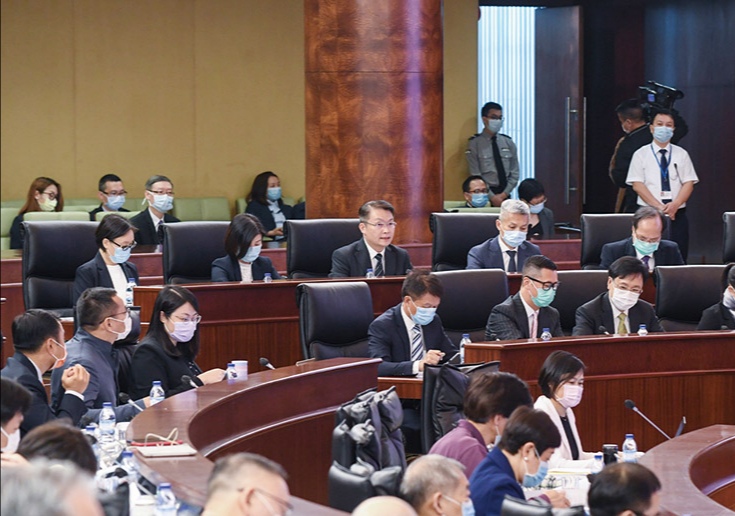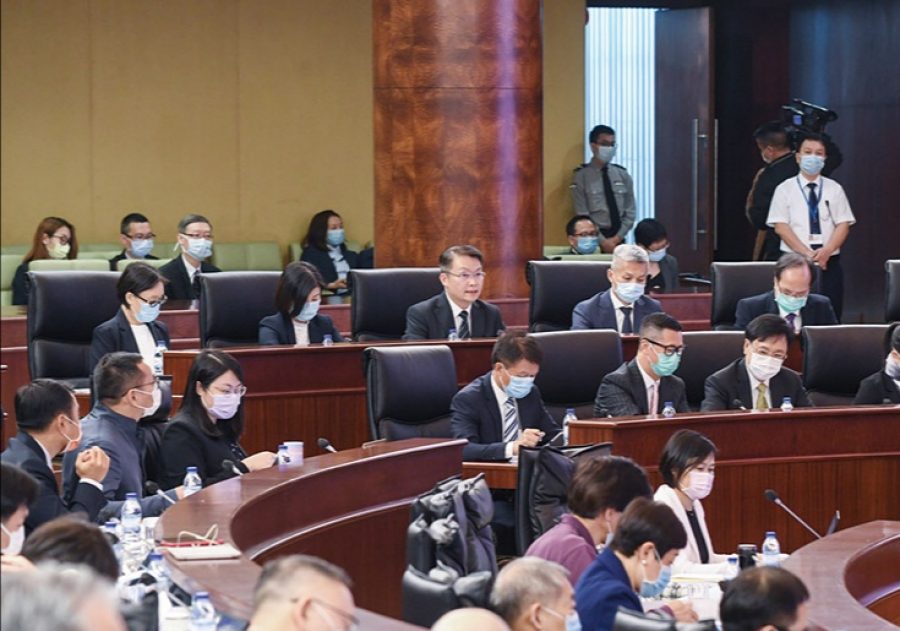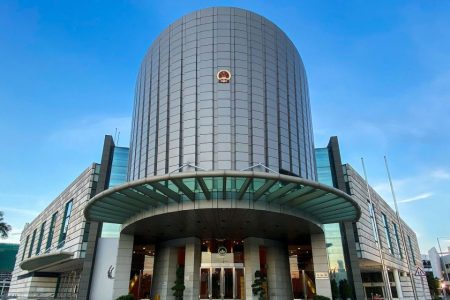Secretary for Economy and Finance Lei Wai Nong reaffirmed on Monday that the government aims to launch a public consultation by the end of this year on the granting of future gaming concessions in the run-up to the expiration of the city’s three gaming concessions and three sub-concessions in 2022.
Lei made the remarks during a one-day Q&A session in the legislature’s hemicycle about his portfolio’s policy guidelines for this year.
In his introductory speech, Lei pointed out that the city’s three gaming concessions and three sub-concessions will expire in June 2022, which he said is a matter of great interest to local civil society. Lei pledged that the government will “seize the time” to study the granting of future gaming concessions and prepare for the upcoming gaming concession bidding process.
Lei said that the government will listen to opinions from civil society on various issues in relation to the granting of future gaming concessions, such as the way the government will hold the upcoming bidding process, future gaming operators’ non-gaming elements, their social responsibility, and their support measures for the city’s small- and medium-sized enterprises (SMEs). Lei said that the government will launch a public consultation in due course so as to “harness collective wisdom” for the drafting of amendments to the city’s current gaming industry law.
During Monday’s plenary session, several lawmakers asked Lei about a clear timetable as to when the government will carry out the public consultation on amendments to the gaming law. They questioned whether the government would have sufficient time to prepare and complete the bidding process before the expiration of the current three gaming concessions and three sub-concessions.
Directly-elected non-establishment lawmaker Au Kam San said that the expiration of the current gaming concessions and sub-concessions will be soon, and legislation on amendments to the current gaming law would be needed first before the bidding process can take place.
The government’s proposed amendments to the law will have to be presented to the legislature for debate and vote.
Appointed lawmaker-cum-gaming scholar Davis Fong Ka Chio pointed out that the current three gaming concessions and three sub-concessions will expire in only 26 months Fong pointed out that it took the local government nine months to complete the whole process for the international open tender for casino concessions in 2001 and 2002 – including legislating on the current gaming law, which came into force in 2001, the launch of the gaming concession bidding process, and the announcements of the results of the tender.
Fong said that as the upcoming granting of future gaming concessions will entail a public consultation, he expects the whole gaming concession bidding process this time to take at least a year, adding that therefore the government this time would need to officially launch the bidding process in June next year at the latest. Fong urged the government to launch the bidding process earlier so that it would have sufficient time to tackle any possible uncertainties.
Lei replied that the government “has never stopped” working on the preparations for the gaming concession bidding process amid the COVID-19 epidemic – which emerged in Macau in January – since he took office 129 days ago, adding that the government is now striving for the public consultation to be carried out at the end of this year.
‘More selective’
Lei noted that the upcoming gaming concession bidding process and the one in 2001 and 2002 – when the government liberalised the casino sector – are two completely different things. Lei said that the government can be more selective in its granting of gaming concessions during the upcoming bidding process than during the 2001-2002 bidding process. “This time the government will have more space on choosing and deciding how the gaming industry should run in the future,” the policy secretary said.
The city’s current six gaming operators are SJM, Wynn, Galaxy, Venetian, MGM and Melco. While SJM, Wynn and Galaxy are concessionaires, the Venetian, MGM and Melco are sub-concessionaires.
Observers have pointed out that amendments to the current gaming law would be needed to solve the “historical issue” of the current gaming concession and sub-concession model – the gaming industry’s “3+3” system – as the gaming law stipulates that a maximum of three gaming concessions were to be granted.
Lei said that the government does not have a timetable as to when it intended to complete the whole gaming concession bidding process. He was quick to add that the government’s “ultimate aim” was to ensure that the process will be completed by June 2022 – when the current three gaming concessions and three sub-concessions expire.
Lei said that there was a need to redefine non-gaming elements. He said that civil society would need to think about whether hotels, shopping centres and restaurants in casino resorts really belong to non-gaming elements, and whether the future gaming operators should add other things as part of their non-gaming elements such as sports activities.
Trade union bill
Meanwhile, Lei also said that the government was now striving to launch a public consultation on the drafting of the city’s first-ever trade union bill in the third quarter of this year. Lei pledged that the government will draft a trade union bill that will be “suitable for Macau’s continued development and its future needs” after collecting residents’ opinions during the upcoming public consultation process.
The legislature rejected a trade union bill for the 11th time last month. A total of 11 trade union bills by various lawmakers have been submitted to the legislature since the founding of the Macau Special Administrative Region (MSAR) in December 1999. Macau is the only jurisdiction in China that still does not have a trade union law – unlike the Chinese mainland, Taiwan and Hong Kong.
Hengqin ‘prejudice’
Meanwhile, Lei urged civil society not to be prejudiced against the government’s policy of deepening cooperation between Macau and Hengqin. Lei said that Hengqin would provide Macau with sufficient land for the latter’s continued development, particularly by helping Macau diversify its industries and tackle the housing problem.
Lei noted that the local government has always stressed Macau’s need to integrate itself into the Guangdong-Hong Kong-Macau Greater Bay Area (GBA) which covers an area of 56,000 square kilometres with a population of 70 million. He underlined that Macau’s insufficient land resources have limited its continued development for a long time.
(The Macau Post Daily/Macau News)
PHOTO © Government Information Bureau (GCS)






